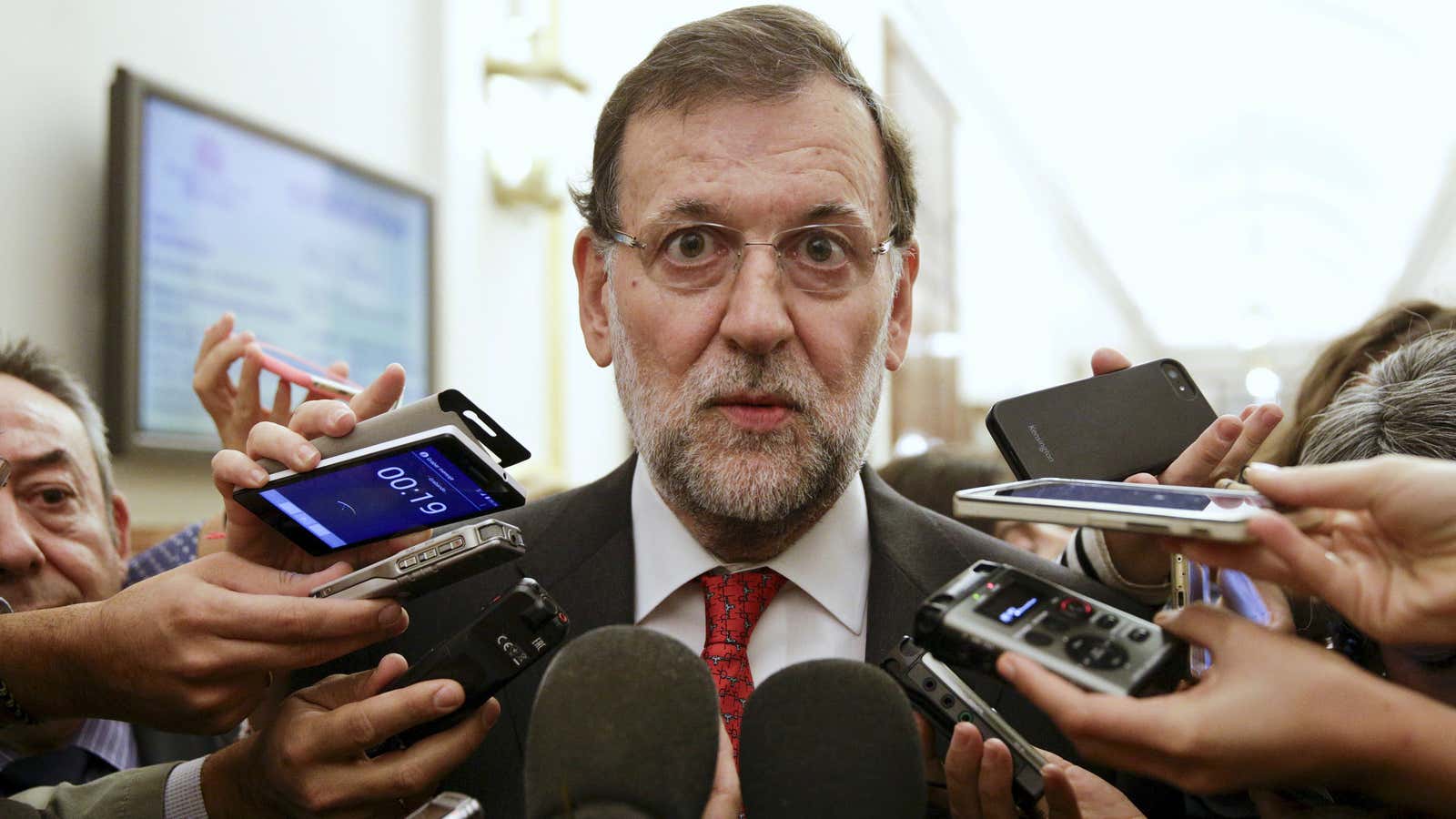Spanish politicians are among the least trusted compared to their counterparts in other wealthy countries, according to the World Economic Forum’s Global Competitiveness Report. And judging by the Spanish government’s treatment of voters in the Catalonia independence referendum, it’s no surprise.
Spain’s government deemed the referendum illegal and gave the power to the police to storm ministries and buildings belonging to Catalonia’s regional government, close down polling stations, and seize ballot boxes, computers, ballots and “propaganda.” Today (Oct. 1), around 300 people were injured in protests, where the government supported police using riot gear, rubber bullets, and forcibly dragging voters away from schools used as polling stations. The government even cut the internet to several polling centers, forcing electoral volunteers to halt voting because the website hosting census data is down.
Every year, the WEF releases its Global Competitiveness Report, which aims to be an in-depth look at the economic health of nearly 140 countries around the world. The WEF asked 13,000 business executives in a survey, “in your country, how do you rate the ethical standards of politicians?” A score of 1 rates trust as “extremely low” while 7 is “extremely high.”
The average score for Spain was just 2.2; it ranked 104 out of 137 countries. Out of the 34 countries in the Organization for Economic Cooperation and Development, which are considered to have relatively developed democratic systems and economies, Spain is fifth from the bottom:
